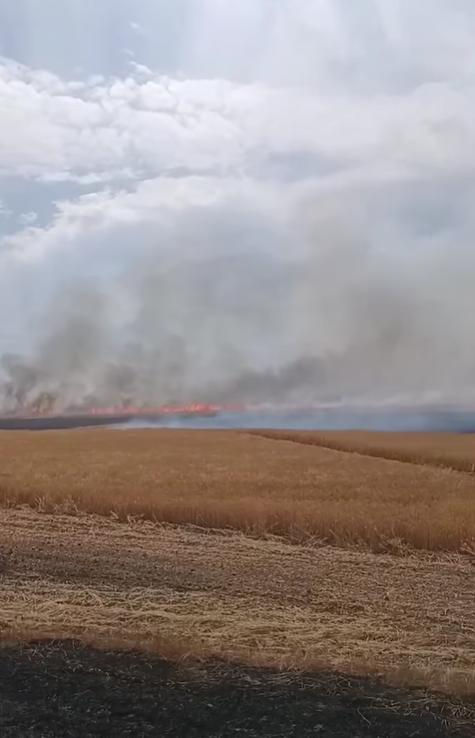Krakow conversations on food security - conversation with the Mayor of Krakow
- martaserafin
- 17 sie 2025
- 4 minut(y) czytania
Zaktualizowano: 15 wrz 2025
“What’s the potential for short food supply chains linked to non-industrial agriculture in the Krakow metropolitan area for assuring food security in times of crisis?” asked Mayor Stanisław Mazur of SFSC4foodsecurity project partners at an in-camera session held on July 10th to discuss food policy proposals in Krakow’s development plan 2030/50.
Stanisław Mazur is the 1st Deputy Mayor of Krakow who is responsible for preparing the strategy document for and on behalf of Aleksander Miszalski the Mayor Krakow. He was joined by Krzysztof Gorlich who heads up the inter-departmental team at City Hall which has been drafting the Strategy document through consultation with experts organised in 10 thematic areas.
With up to 10% of Krakow’s population now Ukrainian, Olena Postolnyk who heads up the Jednosc Foundation in Krakow joined the meeting. Her foundation is focused on education and works with young people in Krakow with a focus on building strong Polish-Ukrainian relations.
Key insights from the discussion that followed were as follows:
Food security should certainly not be taken for granted, especially amid the urban sprawl Krakow is now experiencing. Supermarkets provide the illusion of food plenty, but cannot assure food supply in times of crisis. The widespread loss of agricultural land and farming in and around Krakow could be a lost opportunity for food security. Farmland, farming and food production in allotments are important in their own right. It’s important to have policies that recognise and protect farmland and farming not as future development land as is the case today, but as food security infrastructure. This opportunity was missed in Sweden. Farms once lost to development are difficult, if not impossible, to recreate. Krakow is right to include food security priorities in its development planning. Without farmers and food production capabilities locally, short food supply chains will not work.
City food policies need to focus on creating demand for locally-produced food and spaces for Krakow residents to buy food from local farmers. Public procurement policies and procedures for local food is an obvious opportunity with schools and other municipal institutions. Many cities in Europe have made progress in this area. Latvian experience is particularly relevant. With demand for locally-produced food comes pressure for food collection and purchasing spaces. Herein lies opportunity for revitalising food marketplaces as public spaces. Existing markets are too often losing out to price competition from supermarkets with developers seeing the land as development opportunity. Linking on-line markets to physical markets is clearly an opportunity. On line markets are operating in some form in all the SFSC4foodsecurity partner countries. Short food supply chains will only work if there is demand for the local food that is offered. It’s also opportune to recognise the multi-cultural nature of Krakow residents, which includes many food cultures. All can build on locally-produced food and provide also insights and support on how to transition away from supermarket food culture towards healthier living.
Food infrastructure is needed to connect food producers and food consumers. Once supply and demand for locally-produced food starts to grow, challenges appear in the form of logistics and distribution. This is an opportunity for innovating with market-oriented approaches that harness IT-technologies and sharing economy organisational models that reduce and not increase transaction costs where there are geographically dispersed producers and consumers. Organisationally short food supply chains, which enable producers and consumers to transact without intermediaries can benefit greatly City government taking on the role of organiser. An important model is that of food municipal enterprises in Ukraine, which have been set up to make optimal use of agricultural land by making it available to those who want to farm but have no means to do so. And also to ensure that consumers have access to food with food sovereignty as a priority. The approach is also focused on cost recovery as opposed to a subsidy approach which drives innovation.
Partnership oriented food governance is key as multiple jurisdictions and numerous stakeholders are inevitably involved. Krakow’s food system is not confined to administrative boundaries. This means that the future must lie more in enabling a multi-actor approach that engages all stakeholders from across the public, private and civil society sectors, as well as engaging Krakow residents as partners rather than as passive beneficiaries. In the Krakow context, the Malopolska Regional Government, local governments in areas surrounding Krakow, farmers, NGOs, universities, restaurateurs, as well as residents all have a stake in growing a local market for locally produced food. The city has a critical enabling role to play. Without this, local food initiatives will not gain traction or scale for the lack of a regulatory and policy framework. There is much to learn from the experience of Malmo in Sweden, which has taken on such an enabling role and engages with the Swedish Agricultural University for food system improvement as on ongoing research & development activity.
Summing up:
The response to the Mayor’s question is that small-scale farming, non-industrial food production, allotments, school gardens, farmers markets should be seen not as problems and cost centres, but as opportunities for innovation to reframe and reinvigorate local food markets to deliver benefits of food sovereignty, sustainability and security without the need for subsidies. But without an organising framework, food-related initiatives are scattered, small-scale, unsustainable and isolated from one another. The role and opportunity for the City of Krakow is to become something of a facilitator of food system transformation by nurturing, connecting, promoting, brokering, communicating and enabling rather than coordinating, funding or managing.




Komentarze